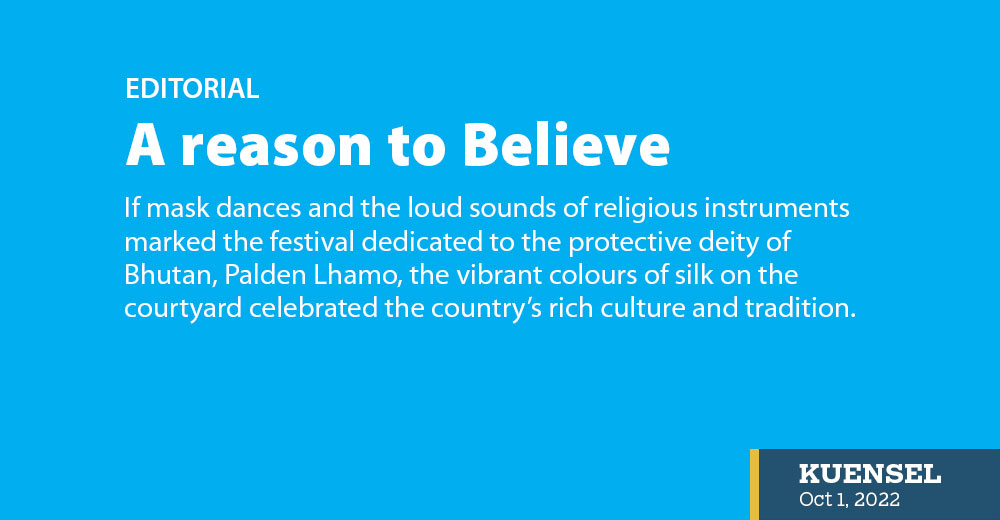If mask dances and the loud sounds of religious instruments marked the festival dedicated to the protective deity of Bhutan, Palden Lhamo, the vibrant colours of silk on the courtyard celebrated the country’s rich culture and tradition.
By 8am, people who have come to watch the dromchoe yesterday almost filled the courtyard of Trashichhodzong. Thousands gathered at the courtyard of the dzong, many squatting on bare stone slab floor, to witness the dromchoe also known as Drubchhen instituted by the first incarnation of Jampel Dorji, the son of Zhabdrung Ngawang Namgyal, Kuenga Gyaltshen in 1709.
It is one of the biggest and most important rituals performed in the country. It is not only important in terms of religion but also in affairs of the state as it is performed to guard the country against external forces.
We may not realise it, but most visitors see a pristine country and strongly visible culture evident on occasions such as a tshechu or local festivals. Visitors often leave with pangs of nostalgia of a world that is largely unchanged when they see the local festival, a village choku or enjoy local hospitality.
In most parts of the world, governments are trying to revive the human element in the lives of the people. Some have incentives and subsidies to encourage social and family values that have fast disappeared. We believe we are far better off.
Many of us would even like to believe that, in a world where the quest for materialism is rapidly eroding some of the most basic human qualities, we have remained true to the best in our own traditions.
In the Gross National Happiness narrative, it is recognised that a decline in traditional heritage and cultural wisdom will lead to a weakened society.
And there are challenges. An elderly visitor seemed quite agitated by the noise from the Mobile Legend game a boy was playing on his phone nearby. Even as we commit ourselves to preserving our culture, visitors are struck by the growing influence of TikTok, movies, and the Internet on the youth. The availability of coke, Pepsi, and a myriad of other imported consumer goods in the shops portray the impact of globalisation. How best to tackle them deserves much thought.
For a small nation like ours, culture is important for sovereignty, but many are unaware of how. The dromchoe is a good example. And as long as children as young as two years wear traditional dresses and come to experience such special events together with their elders, we have a reason to be optimistic, and to believe.


